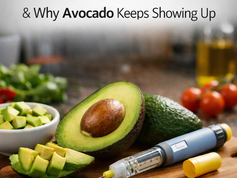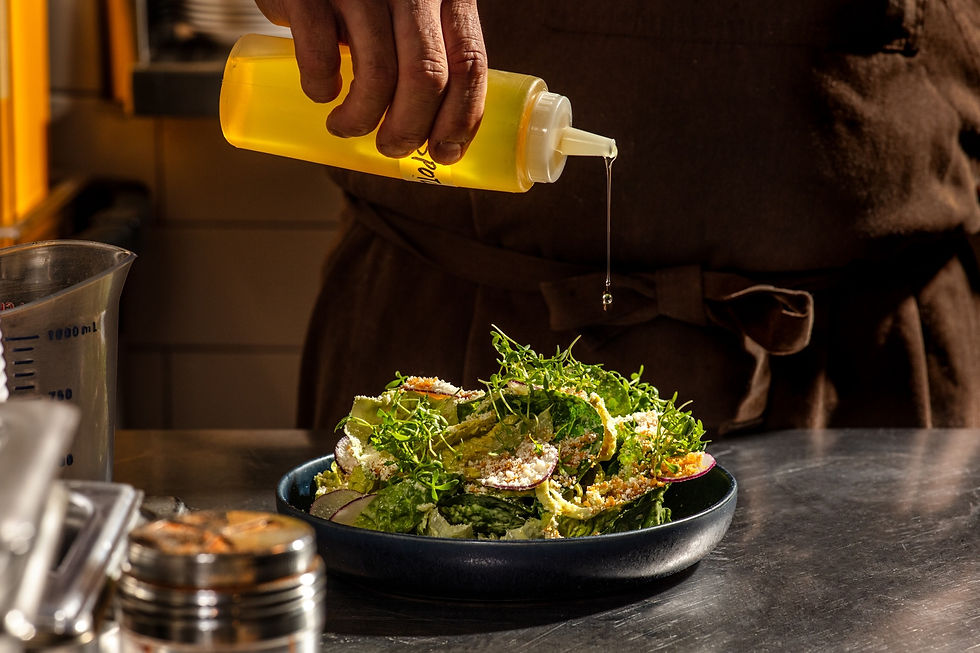

Greenland - From Geopolitics to Crunchy Greens
Greenland is back in the headlines, not for geopolitics or melting ice, but for something far more practical: food. In the Arctic town of Sisimiut, population roughly 6,000, a local hydroponic farm is proving lettuce, not logistics, might be the real sovereignty issue. As imported produce arrives soggy, bruised, and eye-wateringly expensive, locally grown crunchy greens are quietly winning shelf space.
Feb 31 min read


What To Eat on GLP-1 & Why Avocado Keeps Showing Up
Clinical evidence helps point the way. A randomised 3×3 crossover study, published in a peer-reviewed journal and indexed on PubMed, shows that adding avocado to a mixed meal can improve post-meal blood glucose response and satiety, particularly in overweight adults. For GLP-1 users, those outcomes are not theoretical, they map directly onto daily challenges around energy dips, under-eating and nutritional adequacy.
Feb 21 min read


UK Kraut Market Moves From Gut Side Dish to Centre Plate
Fresh, live fermented foods are quietly breaking out of the health-food corner in the UK and sauerkraut is leading the charge. Once seen as a sour continental side dish, kraut is now being re-discovered as a flavour-forward, everyday food, buoyed by growing interest in gut health, fermentation literacy, and mounting consumer distrust of ultra-processed foods.
Feb 11 min read


Will Harris Farm Become Amazon's Whole Foods Australia?
Amazon doesn’t do “dabbling”. When it partners with a premium food retailer, history suggests it’s usually step one, not the end game. The new Amazon–Harris Farm Markets grocery tie-up in Sydney, Australia, looks tidy on the surface, same-day delivery, curated fresh food, Amazon Flex drivers, but beneath it sits a bigger question: is Harris Farm being quietly groomed as Amazon’s Whole Foods analogue for Australia?
Jan 301 min read


China’s Premium Food Moment Is Wide Open To Artisanal Products
“There’s never been a better time for ANZ artisanal food producers to enter the China market.” That’s the assessment from Iain Langridge, MD of In2AsiaExports, who has spent more than a decade helping premium international food and wine brands establish themselves across China’s fast-evolving and ever changing food landscape.
Jan 271 min read


FoodTech 500 2025 & The Survivors of the Protein Reset
The 2025 FoodTech 500 reads less like a hype parade and more like a post-mortem. Plant-based hasn’t vanished, cultivated meat hasn’t collapsed, but the centre of gravity has shifted. The companies still standing are quieter, more technical, and far less interested in convincing consumers to “change behaviour”. This year’s list rewards those building infrastructure, ingredients, and systems that slot into existing food supply chains.
Jan 271 min read


Luxury Fruit and Why Saudi Arabia Is Betting on White Strawberries
Saudi Arabia’s first reported harvest of white strawberries in Hail isn’t really about berries, it’s about status crops. According to the Saudi Gazette, the Kingdom now claims a place as the world’s third producer, after the US and Japan, to grow this rare varietal, bringing agricultural progress and premium innovation into one.
Jan 271 min read


MrBeast Takes Cultivated Meat Into Pop Culture
In what looks like a stroke of PR genius, cultivated meat just had its MrBeast moment, and it didn’t arrive via policy, panels, or press releases, it landed through culture. YouTube heavyweight Jimmy Donaldson aka. MrBeast visits UPSIDE Foods and is walked through how cultivated chicken is actually made. No theatrics. No sci-fi panic. Just cells, bioreactors, and a process that looks more like brewing than “lab meat”.
Jan 261 min read










Comments